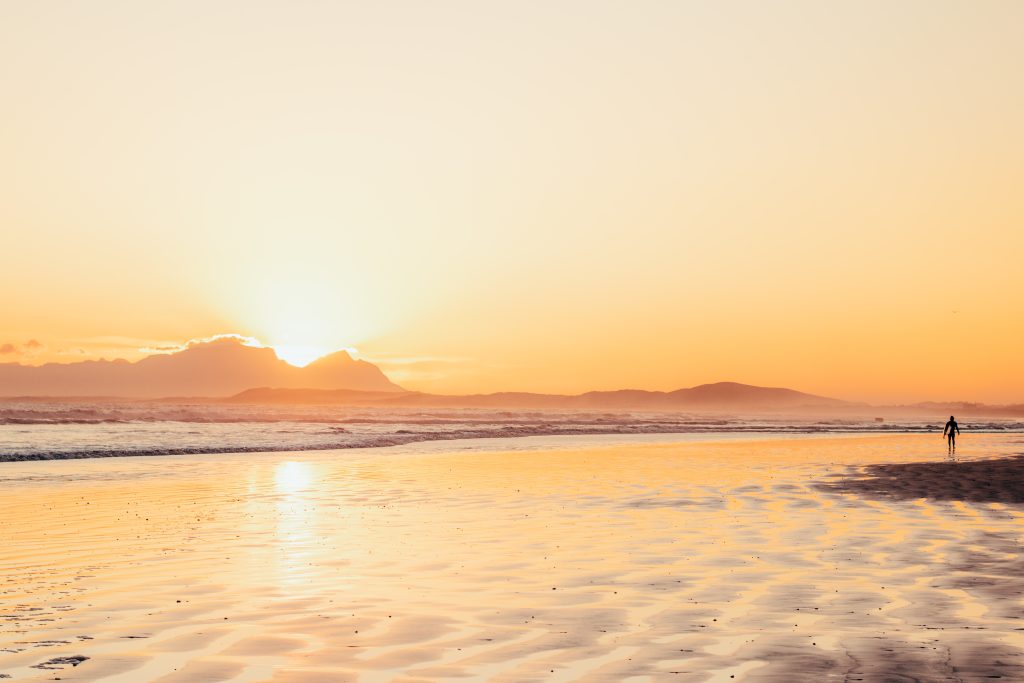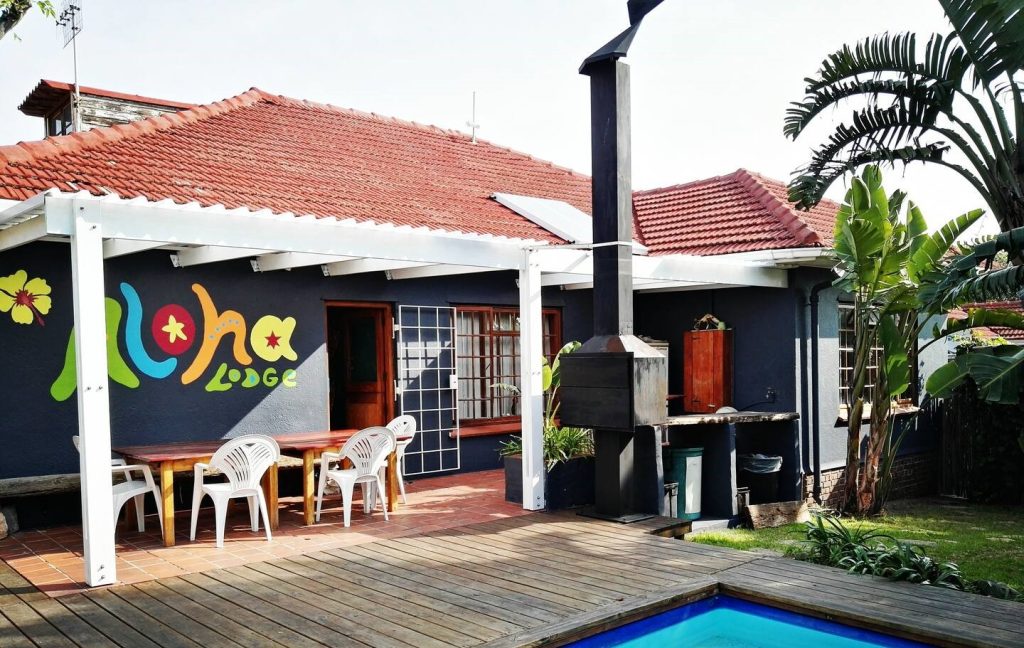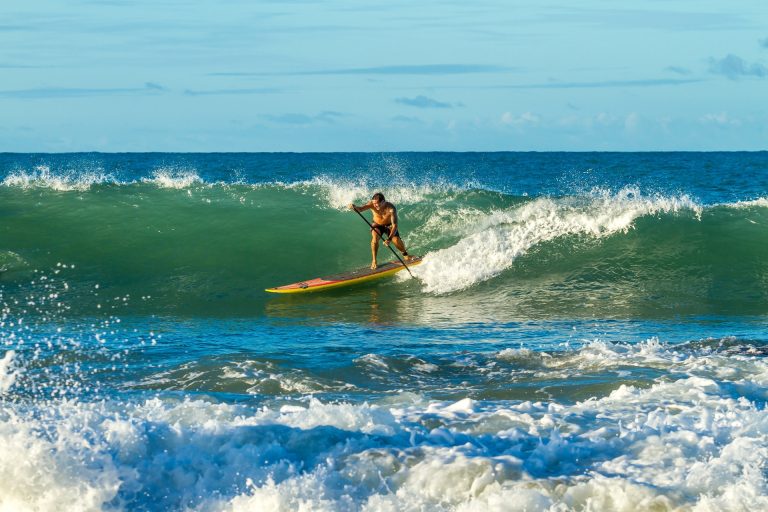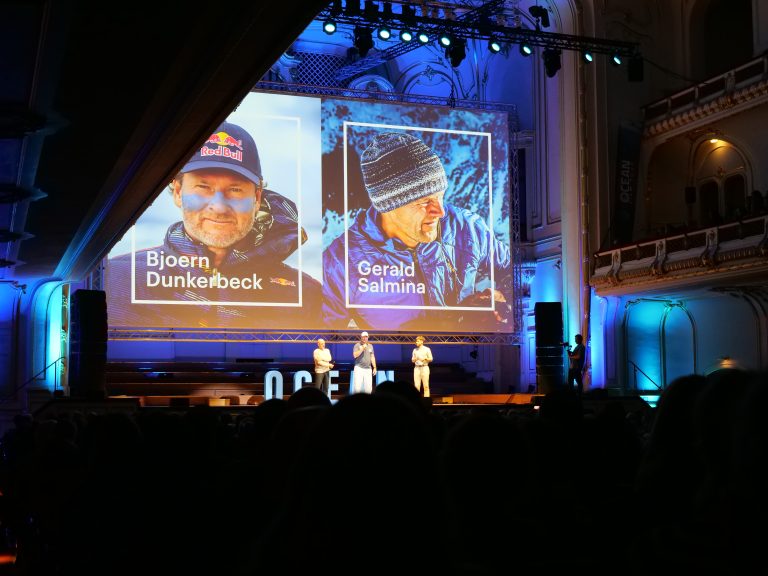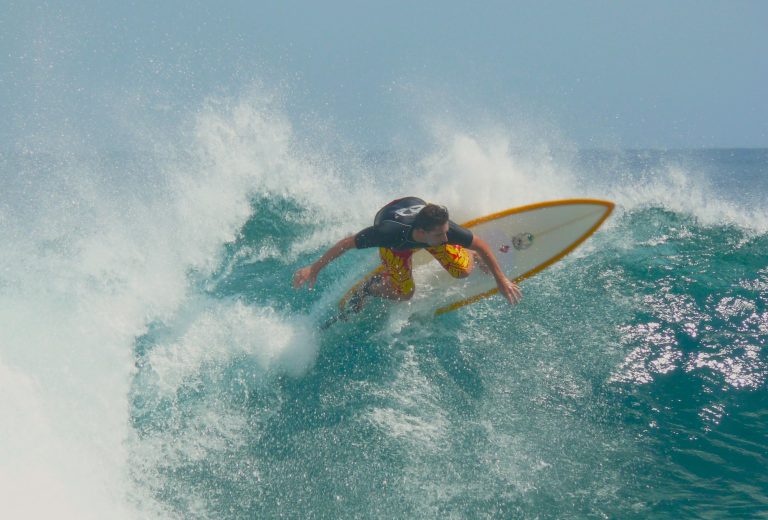Cape Town, the captivating metropolis at the southern tip of South Africa, is much more than just a breathtaking skyline with a rich history. For those seeking adventure and loving the sea, this vibrant city at the Cape of Good Hope offers a true paradise: Surfing in Cape Town. With its spectacular coastline, legendary waves and vibrant surfing community, Cape Town is a dream destination for surfers from all over the world. In this blog post, we delve into the exciting world of surfing in Cape Town. “We will tell you everything you need to know so you can make the most of your surfing vacation in this exciting city.”
Topics
1. Cape Town - The surfing capital of South Africa
South Africa – it is not without reason that the tourism slogan is “The world in one country”. Here you will find a diversity of nature, lifestyle, culture and surf breaks like in no other country. Cape Town in particular has captivated us: Exciting city life surrounded by picturesque mountain ranges and vineyards, as well as of course endlessly long, rugged coastlines with perfect waves aplenty. There are suitable breaks for every type of surfing in Cape Town and the surrounding area: Whether windsurfing, kitesurfing, surfing, wing foiling or SUP – anyone who surfs here will definitely fall asleep with a satisfied stoke feeling! Whether you’re an experienced surfer or just dreaming of standing on a board for the first time, Cape Town has something for everyone. Get ready to conquer the waves and experience the surfing adventure of a lifetime!
If you’re a beginner and surfing is what interests you most, we recommend reading our following blog on equipment:“Surf equipment – what do I need to surf?”
2. Windsurfing in Cape Town
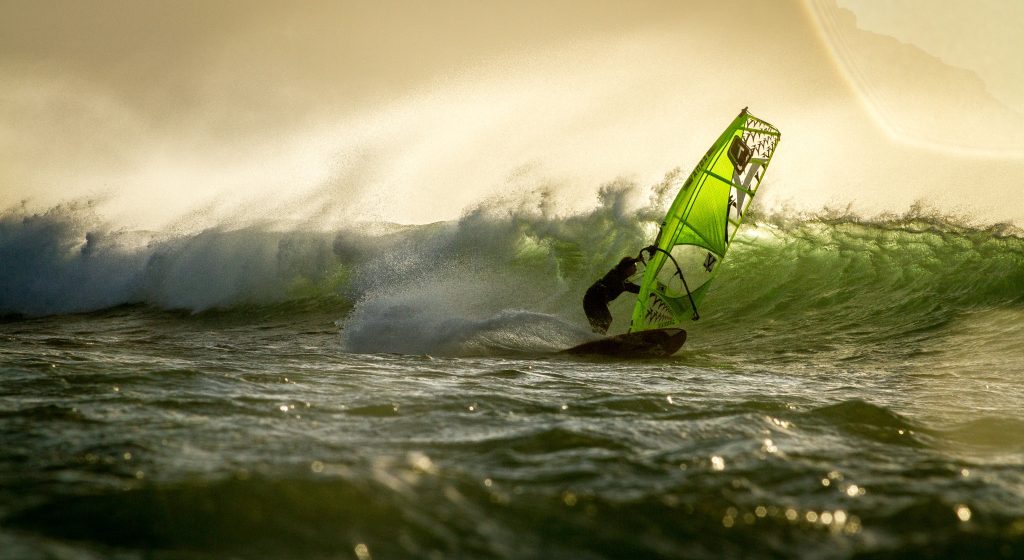
Best travel times
The best conditions for windsurfing are generated by the strong southeast Passat winds from October to March. Bloubergstrand and Langebaan are among the most popular destinations for windsurfing.
Weather at the best times to travel
Escaping the German winter? No problem! When it gets cold here, summer arrives in South Africa. With an average of 26 °C, it is hottest from December to February. Fortunately, the cool Atlantic air provides a fresh breeze. Rainfall is rather rare, but there are numerous hours of sunshine.
Neo
The Atlantic is pretty cold all year round; in Cape Town, it rather depends more on which side of the Cape you are on. On average, the water temperature is only 14-16° C. A 4.3 mm wetsuit is suitable in any case, for colder days you should also have a hoodie and booties (preferably 3 mm) in your luggage.
3. Kitesurfing in Cape Town
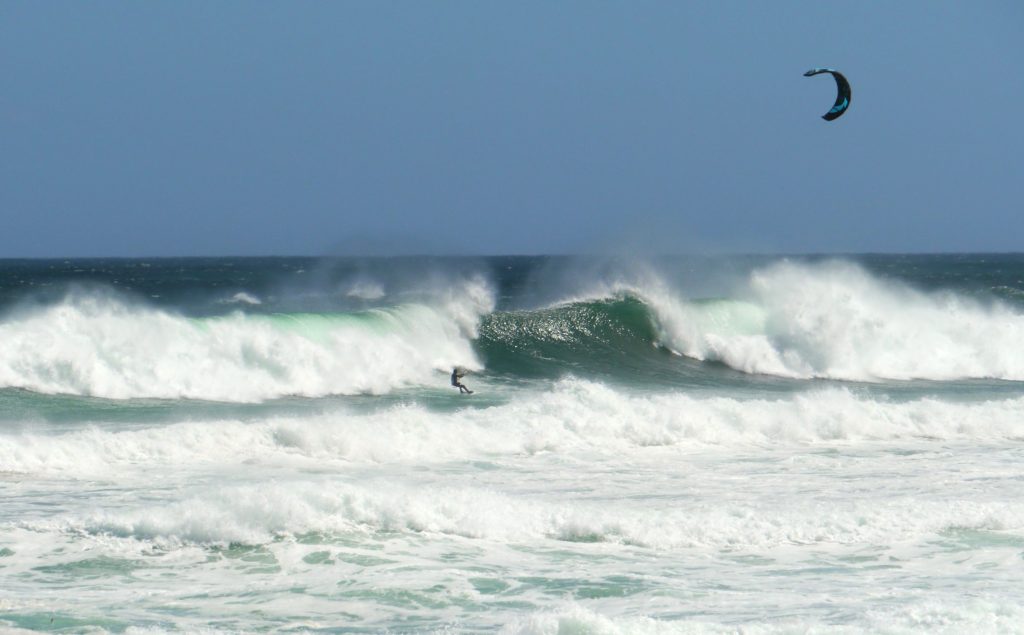
Best travel times
The best months for kitesurfing in Cape Town are exactly the same as for windsurfing, as the stronger wind from southeast also generates the ideal conditions here. The weather and the right wetsuit also correspond to the above information.
Main spot for kiting
Along the endless stretches of coastline in Cape Town, there are a plethora of surf spots for kitesurfing – for beginners and advanced surfers alike. Those who are new can try themselves out at Sunset Beach. Kite Beach, Dolphin Beach and Big Bay are among the favorites of the advanced riders.
King of the Air
The “King of the Air” competition organized by Red Bull takes place in Cape Town every year. The best kitesurfers from all over the world compete in the waves, stunning the audience with acrobatic jumps and maneuvers. The contest takes place in November/December and is definitely a unique experience!
4. Surfing in Cape Town
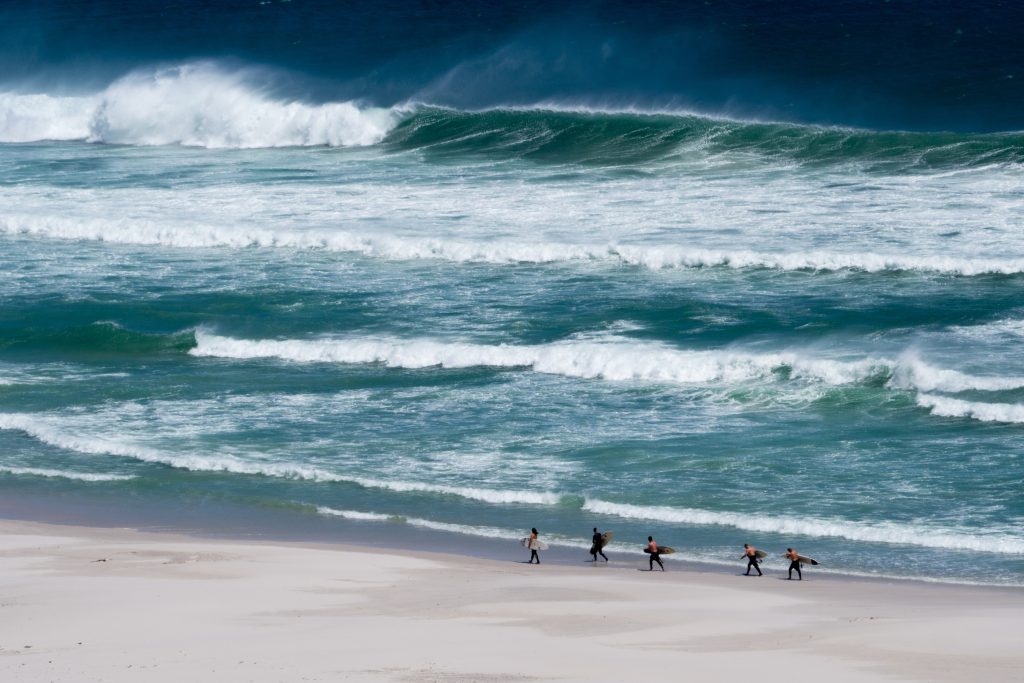
5. SUP in Cape Town
Stand-up paddling is a popular leisure activity in Cape Town. Whether it’s a relaxed paddle along the Waterfront or surfing waves on a SUP – the various bays in and around Cape Town offer the right conditions for everyone. SUPs can be hired or an excursion booked at the Waterfront. In any case, make sure not to use an inflatable SUP, as it can too easily drift out to the open sea.
6. Surf spots in Cape Town
Here are the best-known surf spots around Cape Town:
- Sunset Beach
- Bloubergstrand
- Melkbosstrand
- Izerfontain
- Langebaan
- Lagoon (lake) at Sunsetbeach
- Cape region
- Muizenberg
- Elandsbay
Alternatives to surfing
When the swell or wind isn’t cooperating and there are no waves, it definitely doesn’t get boring in Cape Town! A wine tasting in Stellenbosch should be on the list during every visit to Cape Town. Just like a hike: The classic Table Mountain route will definitely take your breath away. There are numerous hiking trails in general with much to discover. The wildlife and flora are varied and full of adventure. A whale watching tour, for example, is a unique experience. How about a drive along Chapman’s Peak Drive – one of the most beautiful coastal roads in the world – followed by a picnic on the beach? Also recommended is a romantic sunset on Signal Hill – adventurous adrenaline junkies can glide from here towards the sea while paragliding. Cape Town combines nature with city life, which has a lot to offer: Restaurants, bars and nightclubs provide plenty of entertainment. There are also plenty of options for culture and history: Explore various museums and galleries, or take a trip to Robben Island, where Nelson Mandela was imprisoned for 27 years.
7. Gardenroute surf trip
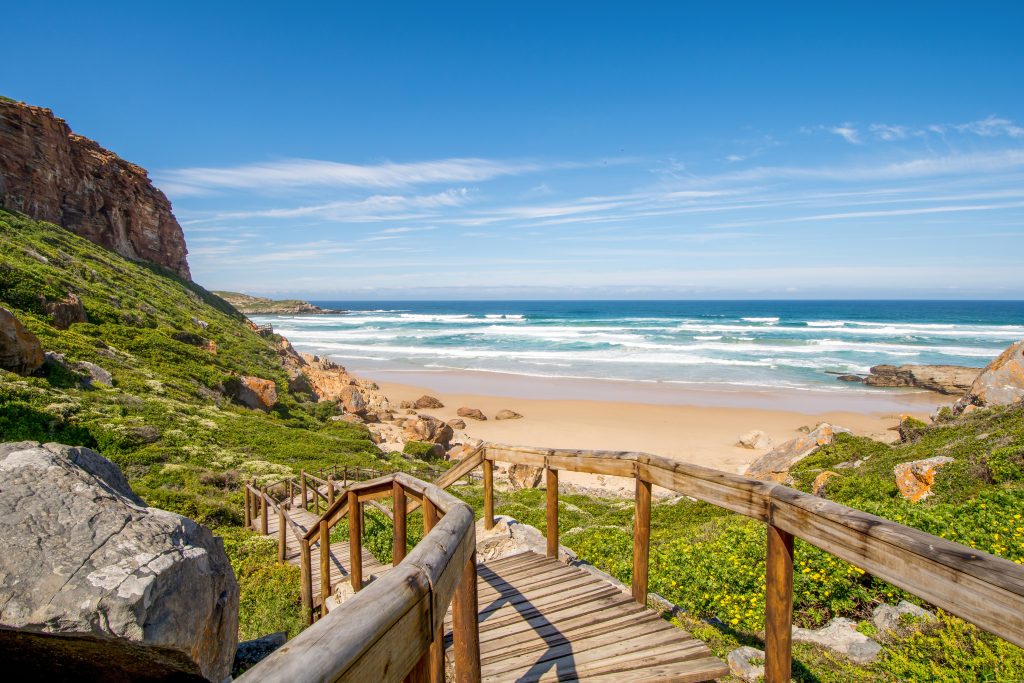
During a surf trip to South Africa, it’s essential to discover as many surf breaks as possible! On a road trip along the Garden Route, you can follow the swell and get to know other cities with exciting sights:
Cape Town – Mossel Bay – George – Wilderness – Plettenberg Bay – Cape St Francis – Jeffrey’s Bay – Port Elizabeth
Here’s the translation: Among the highlights along the Garden Route (aside from the diversity of surf breaks) are: Shark Cage Diving (Mossel Bay), Cango Caves, Ostrich Farm (Oudtshoorn), Whitewater Tubing (Storms River), Hiking in the Robberg Nature Reserve, Birds of Eden, Monkeyland, Reserve Game Safari (Plettenberg Bay), Knysna Heads, Sunset Sailing Cruise (Knysna), Lawnwood Snake Sanctuary (The Crags), Bungee Jumping, Zipline Canopy Tour (Tsitsikamma), Whale & Dolphin Watching with a Catamaran, Addo Elephant National Park (PE).
In general, there are numerous hiking trails, boat tours, game drives, kayak tours, and so on… for the adventurous among you – along with dreamy beaches as far as the eye can see for relaxation in between.
You can read more details about surfing along the Garden Route in our blog“Surfing in winter – warm destinations“.
8. Other surfing regions in South Africa
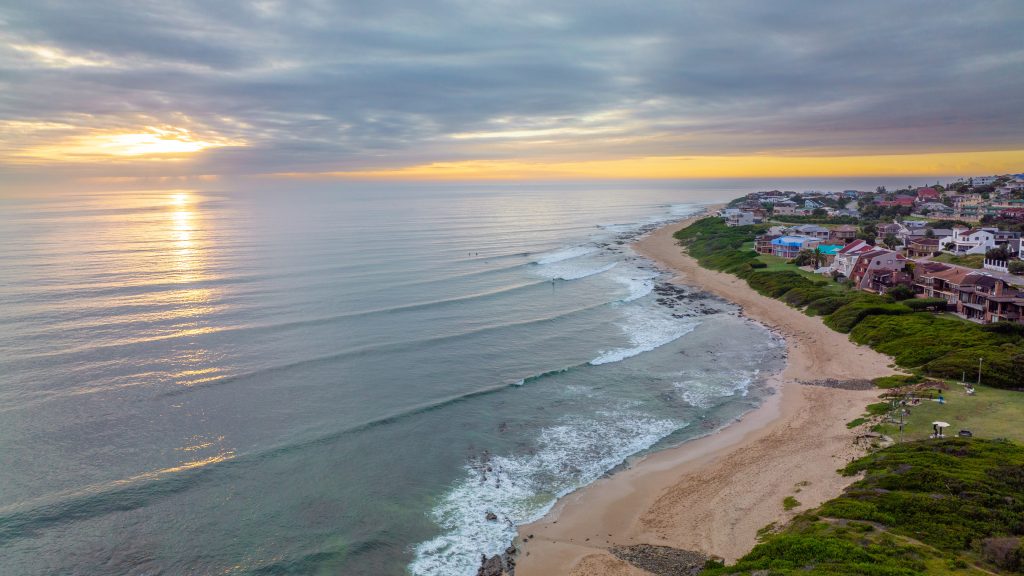
Along the entire coast of South Africa, there are so many surf breaks that a single surf trip is definitely not enough! In this context, there are numerous insider tips in remote areas such as the Transkei, as well as world-famous waves like Supertubes.
Mossel Bay
The smaller town is located between Cape Town and Port Elizabeth. A stopover to explore the surf breaks is perfect on a road trip along the Garden Route. The surfing level here is definitely advanced.
Jeffrey’s Bay
In English: J-Bay is also considered the surfing capital of the country and is world-famous for its endlessly long waves with massive tubes. That’s why the J-Bay Open is surfed here as part of the WSL Surf World Championship. The small town reflects the relaxed surfing lifestyle. Tip: Due to its popularity, priority in the water is given to locals here.
Port Elizabeth
During the winter season (May-September), PE offers a wide range of surf breaks for advanced and professional surfers. During the summer months, it is the ideal town to learn to surf, as the sheltered bay offers ideal conditions for this.
Durban
On the east coast is the city of Durban, which is known for its consistent beach breaks in tropical waters. Compared to Cape Town, the water temperature here in the Indian Ocean is a dream – you can leave the 4.3mm wetsuit in your suitcase!
9. Safety
Theft
Crime exists everywhere in the world, but it is generally more intense in Africa. Leave your valuables in your accommodation when you go surfing, and do not carry any cash with you. Be generally vigilant and avoid walking alone at night, and nothing will happen. 
Unsafe areas
Mitchell’s Plain, Khayelitsha and Philippi are areas that should be avoided. In general, you should stay away from townships. Tip: If in doubt, ask the staff at your accommodation for advice.
Sharks
If you want to surf in South Africa, you surf with all the locals: This includes sharks, dolphins and whales. Although shark attacks are extremely rare, you are still in the their natural habitat. Avoid surfing near river mouths after heavy rain showers and it is best to travel in groups.
10. Flights & budget
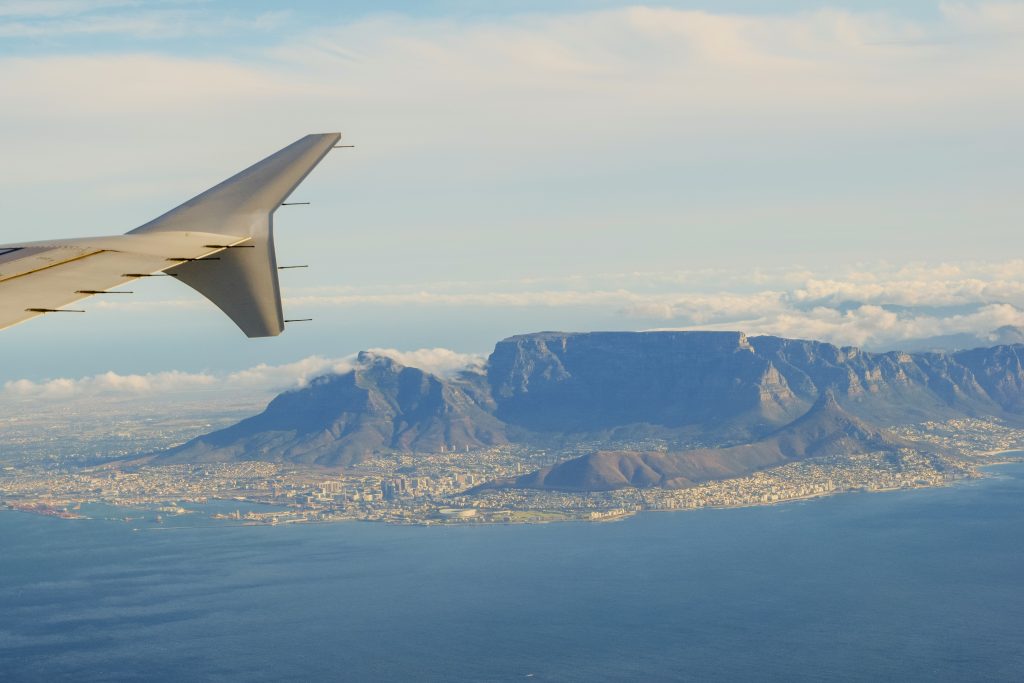
Visa
With a German passport you do not need to apply for a visa in advance, you will receive a “Visa on Arrival” at the airport, which is valid for 90 days. You can have your tourist visa extended to 180 days within the first month – a little time-consuming, but well worth it!
Flight duration & price
A direct flight from Frankfurt to Cape Town takes around 12 hours. We recommend booking a night flight. Fortunately, there is no time difference, so you don’t have to struggle with jet leg! With a stopover you need to plan around 16 hours, but this can often be the cheaper alternative. Currently you should budget around €1,000 for a flight – the earlier you book, the better!
Direct flight Germany -> Cape Town
A direct flight from Frankfurt or Munich to Cape Town can be booked with Lufthansa. However, there are also numerous offers with a stopover in London, Amsterdam, Paris or Dubai, for example.
Airlines
We have had good experiences with the following airlines: British Airways, Emirates, KLM, Lufthansa, Turkish Airlines, Condor, Air France, Swiss Airlines.
Read our blog“Air travel with surf baggage” for lots of interesting facts on this topic, including a comparison of the individual airlines, if you want to take your own equipment with you.
Package deals
Whether all-inclusive or not depends on the type of traveler. Would you like to have all your accommodation, flights and rental cars secured in advance or would you prefer to decide on the spot where your trip will take you? It generally makes sense to book your flight, rental car and first accommodation in advance (especially at peak travel times). Two weeks in a 4* hotel, including meals, rental car and flight cost approx. 3000€ per person. Of course, there are also cheaper and more expensive options, depending on the type of trip and type of accommodation.
11. Car rentals
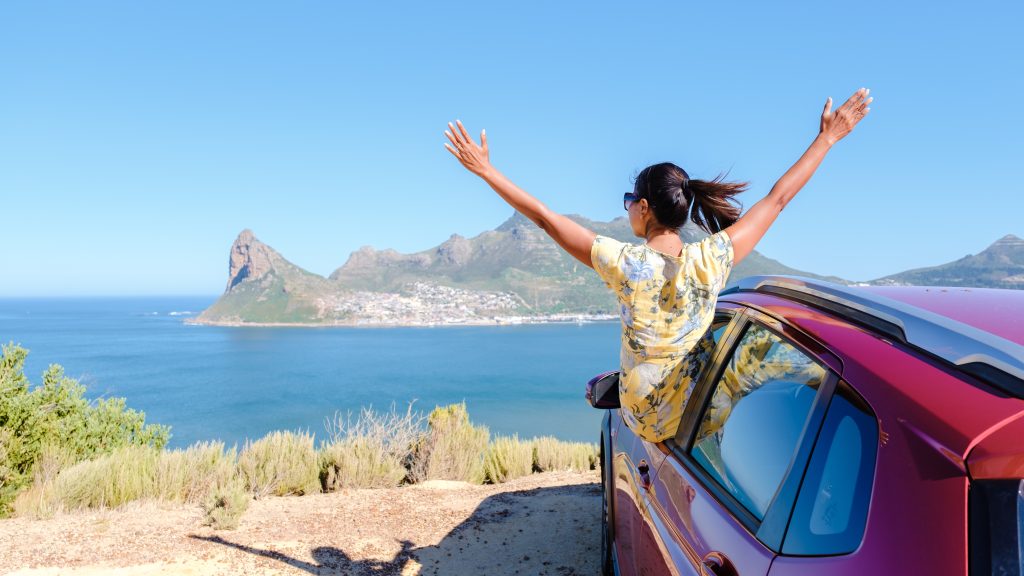
Which providers are there?
Among the most well-known rental companies are the classics Europcar, AVIS, Britz, Hertz, and SIXT. Smaller, local providers are ULF Car Rental, Rentacheapie Car Hire, AroundAboutCars and Richie’s Rentals Car Hire.
Budget (query as of July 2023)
– Small car for 2 weeks from/to Cape Town Airport: approx. 300€
– Mid-range car for 2 weeks from/to Cape Town Airport: approx. 500€
– SUV for 2 weeks from/to Cape Town Airport: approx. 650€
– Pick Up (“Bakkie”) for 2 weeks from/to Cape Town Airport: approx. 1.000€
Tips
- Book your rental car with a German agent or tour operator before you start your trip. In the event of any problems, you have a contact person who speaks the same language, and German insurance law applies. Any settlements, hopefully not occurring, will definitely proceed more smoothly. In addition, there is a greater variety of vehicles.
- Apply for an international driver’s license as a precaution. A normal German driver’s license is usually sufficient for traffic checks, but an international driver’s license can theoretically be required.
12. Accommodation
In general, living costs such as food, accommodation, drinks and restaurant visits are cheaper locally than in Germany. South Africa is known as a tourist destination, which is why there is a wide range of accommodation for every type of traveler:
Lodges
Lodges are usually in a higher price category. They are often located inland and are combined with safaris.
Our tip: the Aloha Lodge in Milnerton is perfectly located with a good price/performance ratio. You can also read our news about our cooperation with the Aloha Lodge.
There are also modern lodges close to the beach with sea view. ⌀ Price per person for two weeks: approx. 1,000€
Surf camp
There are even surf camps with German owners in Cape Town. At the surf camp you can meet like-minded people, hire equipment and do video analysis with a surf instructor. Most surf camps are located directly on the beach and are characterized by a relaxed surfing atmosphere. Advantage: No surfboard on the plane! ⌀ Price per person for two weeks: approx. 600 – 900€
Apartments (e.g. Airbnb) / Bed & Breakfast
Private apartments can be rented via numerous booking platforms. There are numerous self-catering options in comfortably furnished apartments. Bed & Breakfasts are also a popular type of accommodation. Tip: So-called “Granny Flats” are small houses on the owner’s property, which are often rented out for a reasonable price. Apartment ⌀ price per person for two weeks: approx. 300-500€
Backpackers / Hostels
Many young travelers with a surfboard under their arm travel from backpacker to backpacker across the country – either by rental car or bus. Not only is this a cheap alternative to a hotel, you can also get to know lots of other surfers over a beer around the campfire in the evening. ⌀ Price per person for two weeks: approx. 150-200€
(Query as of July 2023)
13. Local terms you should know

South Africa is probably one of the most diverse countries when it comes to cultures and languages. Numerous “slang” words have developed from the 11 different official languages. Here are the most important words and simple greetings from different cultures.
Bru: means “brother” and is used among friends and acquaintances.
Braai: “Braai” is the traditional barbecue over an open fire. At a braai, friends and family sit together for hours and enjoy grilled delicacies.
Lekka: sounds like the German ‘lecker’ and means something like ‘great’. Lekka can be used for all sorts of things, for example: Lekka day! Lekka waves! Lekka my bru!
Howzit: originated from “How is it” and is often used as a greeting.
Just now / now now: means as much as soon or later. Remember that everything is a bit more relaxed here 😉
Yebo: comes from the Zulu language and expresses agreement.
Enkosi: means “thank you” in Xhosa.
Molo: means “hello” in Xhosa.
Hello: is spelled and pronounced exactly like our German “Hallo” and comes from the Afrikaans language.
Dankie: means “thank you” in Afrikaans.
14. Surf trip to Cape Town - compact tips

- Leave your valuables in your accommodation (preferably in the safe), otherwise hidden in the car. Do not hide the car key on the car, if possible attach it to the wetsuit.
- Be prepared for “loadshedding” (power outage). You can use an app to prepare for the times when the power is turned off. Then just head to the beach 😉
- Withdraw only a little cash at a time. In general, you can pay by card everywhere.
- Be prepared for left-hand traffic and generally somewhat chaotic traffic, especially at rush hour.
- Book your flight well in advance to save money.
- Localism: As long as you greet and respect the locals in the water, you won’t encounter any problems. Tip: South Africans are very open when you approach to them. Chat up other surfers in the parking lot and make new friends 🙂
- Don’t forget a travel adapter, sunscreen & mosquito spray!
- There is usually a “car guard” in the parking lots who keeps an eye on the cars. Have an R5 or R10 with you to be sure that your valuables are safe during your surf session.
- Crowds: At popular breaks like Muizenberg, it can get pretty crowded in the line-up. Fortunately, there are various alternative surf spots with fantastic waves. Compared to other popular surfing destinations, it is relaxed.
- Be generally cautious when you are in the city. With natural common sense, nothing goes wrong.
There’s No Day Like a surfday!
Have fun on your surf trip to Cape Town!
Your Stoked Zone Team
